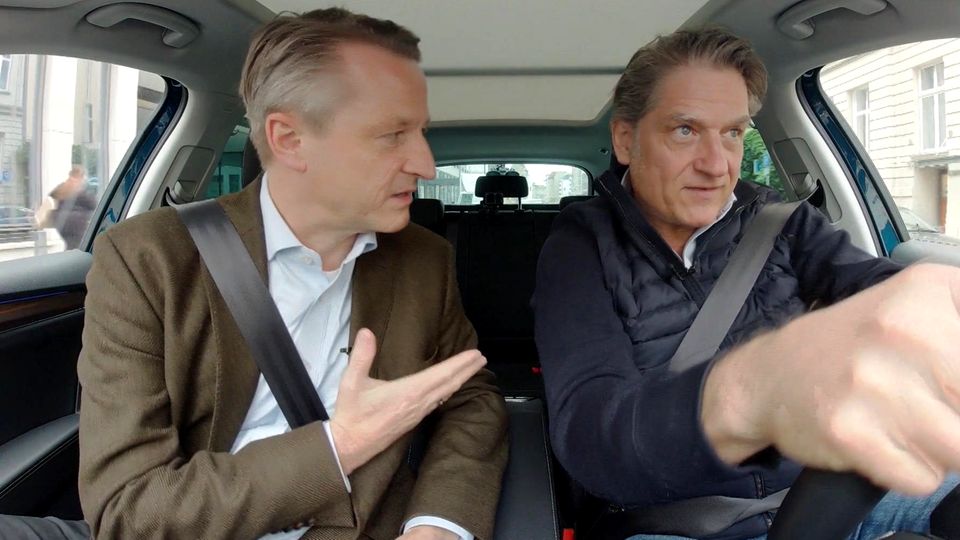migration
Waiting time, dual citizenship, tests: What the Bundestag is changing when it comes to naturalization
The Bundestag makes it easier to obtain a naturalization certificate and thus German citizenship
© Peer Grimm/zb / DPA
The path to naturalization is becoming easier for many people. What exactly the Bundestag decided with its reform of citizenship law.
The path to a German passport is becoming shorter and multiple citizenships are becoming the norm. A corresponding reform of citizenship law was decided Bundestag on Friday in Berlin. Of the 639 votes cast, 382 were in favor and 234 were against, with 23 abstentions. The traffic light factions SPD, Greens and FDP largely voted for it in the final vote, while the CDU/CSU and AfD voted against it. The picture was mixed among the non-attached MPs, most of whom belong to the Left or the Sahra Wagenknecht Alliance.
The traffic lights “stand for a colorful and open society,” explained Green MP Canan Bayram. Sharp criticism came from the Union and the AfD. What changes now:
Waiting time for citizenship
In the future, naturalization will be possible after five years instead of the current eight, and even after three years for “special integration achievements” – this could be particularly good performance at school or work or civic engagement. The head of the CSU MPs in the Bundestag, Alexander Dobrindt, condemned this harshly: “Citizenship must be at the end of a successful integration process and not at the beginning. Express naturalization with low requirements does not promote integration, but makes it more difficult.” The AfD MP Christian Wirth declared: “The proud citizenship should be sold off.”
SPD MP Gülistan Yüksel, however, emphasized that the more than ten million people who lived here without German citizenship were needed: “More than half of them have been living in Germany for over a decade. They contribute to our prosperity. They They work and pay taxes. They are committed and are part of our civil society. They are our neighbors and friends.”
Citizenship from birth
In the future, children of foreign parents will receive German citizenship at birth if one parent has lived legally in this country for five years – previously this was the case after eight years.
Dual citizenship for everyone
In addition, people who become German can retain their previous citizenship in the future. This is already the case, for example for citizens of other EU states. The exception now becomes the rule. The Union parliamentary group’s domestic policy spokesman, Alexander Throm (CDU), criticized: “The general approval of dual citizenship essentially lacks a commitment to our country.” The Green MP Shahina Gambir, however, said: “Multistatehood is part of the reality of life for many people.”
Migration 2023
Most people from these countries apply for asylum in Germany
Commitment to the free democratic basic order
The prerequisite for naturalization remains a commitment to the free, democratic basic order. In the future, the commitment will be added to “Germany’s special historical responsibility for the unjust Nazi rule and its consequences, in particular for the protection of Jewish life, as well as for the peaceful coexistence of peoples and the prohibition of waging a war of aggression.”
The authorities should ensure that these confessions are meant seriously. If there are later indications that this was not the case, citizenship can be taken back within ten years.
Naturalization test is partially eliminated
Anyone who came to the Federal Republic of Germany as a guest worker or to the GDR as a contract worker only has to prove oral German language skills in order to be naturalized and does not have to take a naturalization test. This is justified in the reform law by the “recognition of their life’s achievements” and also by the fact that in the past those affected were offered few integration offers such as language courses. “It is a late sign of gratitude and appreciation for the original generation of guest workers,” said FDP MP Ann-Veruschka Jurisch. “A generation that, with hard work, with diligence and with courage, has contributed to our social prosperity in our country with their entire life’s work.”
Fewer exceptions for transfer recipients
Anyone who wants a German passport must be able to support themselves and those of their dependent relatives. Until now, there was an exception for anyone who was dependent on social assistance or basic security through no fault of their own. In the future, this will only be available for certain groups and cases. These include guest workers, who often worked in the low-wage sector, as well as their spouses who followed suit. In the future, foreigners with full-time jobs who have worked for at least 20 months within the last 24 months as well as foreigners who live together as a spouse or registered life partner with a minor child and a full-time working partner will also be exempt.

The Federal Commissioner for Anti-Discrimination, Ferda Ataman, criticized this tightening. “Many single parents, people with disabilities, chronic illnesses and older people will be disadvantaged by the new law.” The left-wing MP Gökay Akbulut explained: “Anyone who receives transfer payments, even if it is through no fault of their own, has little chance of getting a German passport in the future.” The Verdi union spoke of a “completely unnecessary tightening”. The German Trade Union Confederation DGB said: “This is an unnecessary hardship for people who are particularly dependent on support.” Both welcomed the reform in principle.

